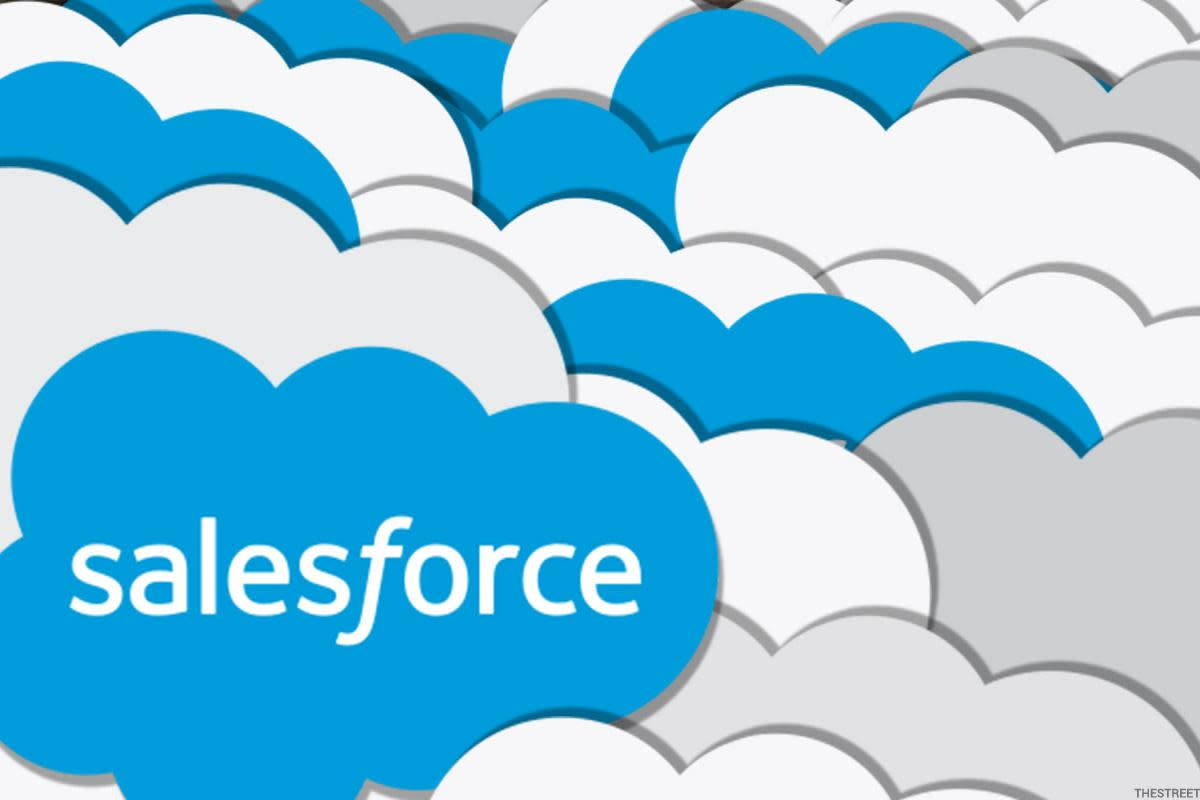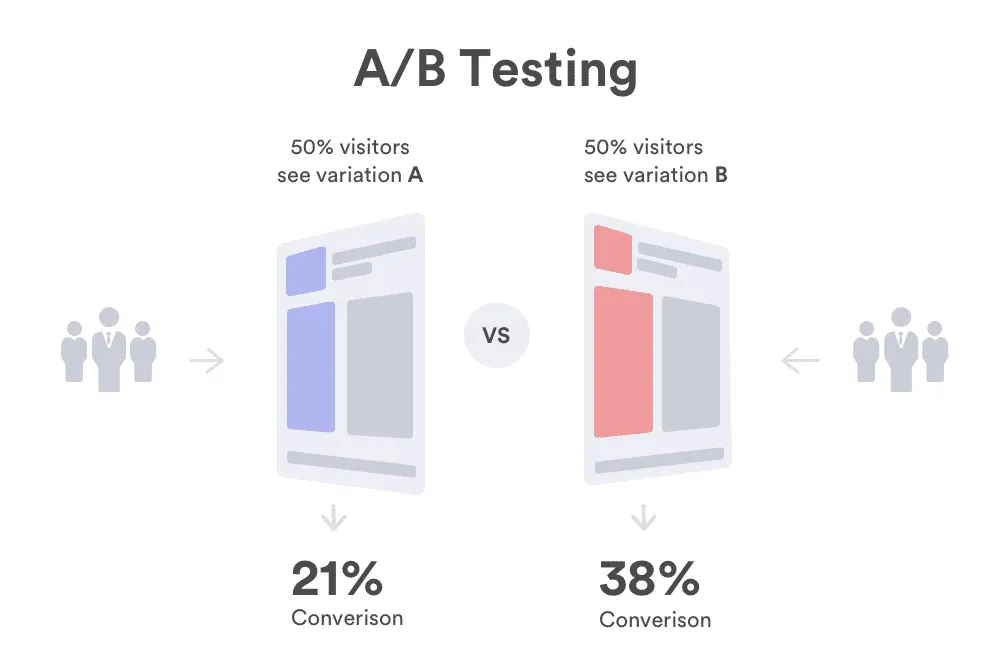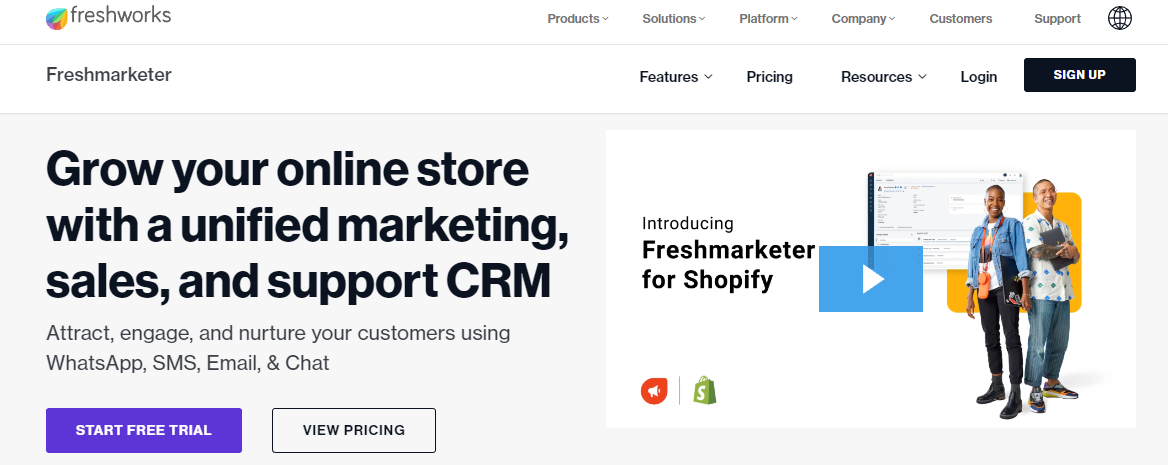Marketing automation is a process that uses software to automate marketing tasks such as email marketing, social media marketing, and targeted advertising. The benefits of marketing automation include increased productivity, improved customer engagement, and increased sales.
1. What is marketing automation and what are the benefits
2. What is Marketo?
3. Marketo Key Features
4. Marketo Pros and Cons
5. Marketo Pricing
6. What is Hubspot?
7. Hubspot Key Features
8. Hubspot Pros and Cons
9. Hubspot Pricing
10. How do Marketo and Hubspot compare
11. Which tool is best for your business Marketo or Hubspot?
12. Alternate Automation Tools
13. Final thoughts
What is marketing automation and what are the benefits
If you’ve ever been on the receiving end of a marketing campaign that felt a little too personal, you may have experienced marketing automation firsthand. Marketing automation is a type of software that allows businesses to automate their marketing and sales processes. This can include everything from sending email campaigns to managing social media posts to generating leads and scoring them based on their behavior.
There are a number of benefits of using marketing automation, including saving time, increasing efficiency, and improving customer engagement. For example, rather than manually sending out email blasts to your entire list of contacts, you can set up automated drip campaigns that send emails at specific intervals (such as once a week or every other day). This not only saves you time, but also helps ensure that your contacts are more likely to see your message and engage with it. In addition, by tracking the behavior of your leads, you can score them based on their interactions with your marketing content (such as opening emails, clicking links, etc.), which gives you valuable insights into which leads are most interested in your product or service.

What is Marketo
Marketing automation software like Marketo is essential for keeping up with the fast pace of the marketing world. Marketo helps marketing teams automate repetitive tasks like email marketing, lead scoring, and social media marketing. This allows marketing teams to focus on more strategic tasks, like creating innovative marketing campaigns. In addition, Marketo’s features make it easy to track the ROI of marketing campaigns, making it one of the most popular marketing automation platforms on the market.
Marketo Key Features
It’s no secret that Marketo is one of the most popular marketing automation platforms on the market today. But what are the key features that make it so popular? For starters, Marketo provides users with a highly intuitive interface that makes it easy to create and manage campaigns. Additionally, Marketo offers a robust set of tools for segmenting and targeting customers, as well as for measuring and analyzing results. And finally, Marketo integrates seamlessly with a variety of CRM and other business applications, making it an essential part of any company’s marketing stack.
1. Marketing automation
There’s no ‘I’ in ‘team,’ but there is an ‘I’ in ‘marketing automation.’ Marketing automation is a tool that can help marketing teams work more efficiently and effectively. Automating repetitive tasks, it frees up time for marketers to focus on more strategic initiatives. And, because it enables marketers to track and measure results, it helps teams to optimize their campaigns and improve their ROI.
2. Email marketing
Email marketing can be a great way to reach out to potential customers and promote your business. However, there are a few things you should keep in mind to make sure your campaign is successful. First, it’s important to have a strong subject line that will grab attention and make people want to open your email. Second, your email should be clear and concise, with a strong call to action.
3. Drip campaigns
A drip campaign is a type of marketing strategy that involves sending out periodic emails, usually on a schedule, to a list of subscribers. The goal of a drip campaign is usually to promote a product or service, but it can also be used for other purposes, such as building brand awareness or fostering customer loyalty. Drip campaigns can be an effective way to keep your customers engaged, but they can also be a bit of a pain to set up and manage. Fortunately, there are now a number of tools available that can automate the process and make it much easier.

4. Lead scoring
As anyone in sales knows, leads are essential for closing deals. But not all leads are created equal. Some leads are ready to buy, while others aren’t even close. That’s why Lead Scoring is so important. It helps salespeople prioritize their time by identifying which leads are most likely to convert. Marketo’s Lead Scoring system is different from other scoring systems because it uses both machine learning and human input to generate scores. That means that it’s constantly getting smarter and more accurate over time. And who doesn’t love a smarter, more accurate machine? Marketo Lead Scoring is the perfect tool for any salesperson who wants to close more deals and make more commissions.
5. Social media marketing
As a business owner, you know that social media is a powerful tool to reach new customers and grow your brand. But what you may not know is that there’s a whole industry of social media marketing experts out there who can help you take your online presence to the next level. Marketo is one of the leading providers of social media marketing services, and its team of experts can help you develop and execute a plan that will help you reach your target audience.

6. ROI tracking
Measuring the return on investment (ROI) of your marketing activities is essential to ensuring that your marketing budget is being well spent. And while there are a number of different ways to track ROI, Marketo’s ROI tracking system is one of the most user-friendly and accurate on the market. Marketo’s ROI tracker works by tracking the leads that are generated by your marketing campaigns and then converting them into customers. It also takes into account the customer lifetime value (CLV) to calculate the overall ROI of your marketing activities. In addition, the Marketo ROI tracker is also able to track the roi of specific channels, such as email marketing, social media, or paid advertising. As a result, you can be sure that you are getting the most bang for your marketing buck with Marketo’s ROI tracker.
7. A/B testing
A/B testing, also known as split testing, is a method of comparing two versions of a marketing asset to see which one performs better. For example, you could create two versions of an email campaign and send them to a randomly selected group of subscribers. Marketo’s A/B testing tool makes it easy to track results and compare the performance of each campaign. With Marketo’s A/B testing tool, you can test everything from subject lines to call-to-action buttons. Marketo’s A/B testing tool is a powerful way to improve your marketing campaigns and ensure that your subscribers are getting the best possible experience. Thanks, Marketo!
8. Multi-channel marketing
Multi-channel marketing is a term that is thrown around a lot these days. But what does it really mean? Simply put, multi-channel marketing is the process of approaching potential customers through multiple channels in order to increase the chances of making a sale. This can include everything from traditional channels like television and print ads to more modern methods like online advertising and email marketing. The key is to use a variety of channels to reach as many people as possible.
Interestingly, recent studies have shown that multi-channel marketing actually has a higher success rate than single-channel marketing campaigns. This is likely due to the fact that people are increasingly exposed to multiple channels of information at any given time. As a result, they are more likely to see and remember a message that is delivered through multiple channels. Marketers who are able to take advantage of this trend will be well-positioned for success in the years to come.
9. Customizable marketing templates
Marketing success depends on having the right tools in place to reach your target audience. With Marketo Customizable marketing templates, you can easily create beautiful and effective email campaigns that grab attention and get results. With a wide variety of templates to choose from, you can find the perfect design to match your brand and message. And with Marketo’s intuitive drag-and-drop editor, you can customize each template to fit your needs. So whether you’re looking for a simple way to stay in touch with your customers or a powerful tool to boost your sales, Marketo Customizable marketing templates have you covered.

10. Integrations with Salesforce, Hubspot, and more
Marketo is a powerhouse when it comes to marketing automation. But what good is all that power if you can’t integrate it with your other business tools? That’s where Salesforce comes in. Salesforce is the world’s leading CRM platform, and the two products play very well together. There are a number of ways to integrate Marketo with Salesforce, and the benefits are significant. For one thing, you can sync your sales and marketing data, making it easier to track and manage your leads. You can also automate repetitive tasks like email marketing and lead nurturing. And perhaps best of all, you can close more deals by capitalizing on the power of both platforms. So if you’re looking to get the most out of Marketo, be sure to check out its integrations with Salesforce. You won’t be disappointed.
Marketo Pros and Cons
1. Pro: Increased productivity
2. Pro: Improved customer engagement
3. Pro: Increased sales
4. Con: Requires a significant investment
5. Con: Can be difficult to learn
6. Con: Limited support for international markets
Marketo Pricing
Pricing plans for Marketo start at $2000 per month for the Standard plan, which includes up to 10,000 contacts. The Professional plan starts at $4000 per month and includes up to 100,000 contacts. And the Enterprise plan starts at $8000 per month and offers an unlimited number of contacts. There is also a free trial available for those who want to try out the platform before making a commitment.
What is Hubspot
HubSpot is another popular marketing automation platform that helps businesses automate their marketing and sales processes. Like Marketo, HubSpot offers a wide range of features, including email marketing, lead scoring, social media marketing, and ROI tracking. However, one of the key differentiators between HubSpot and other marketing automation platforms is its focus on inbound marketing. Inbound marketing is a strategy that focuses on attracting customers through relevant and helpful content, rather than interruption-based marketing tactics like advertising. This makes HubSpot an ideal platform for businesses that are looking to attract more leads and close more sales.
HubSpot Key Features
HubSpot Sales is a powerful sales CRM tool that can help your business close more deals and grow revenue. The software is packed with features that can automate repetitive tasks, such as prospecting and emailing, so you can focus on selling. And, with HubSpot Sales’ real-time reporting, you can see which sales activities are driving the most results. Plus, the built-in productivity booster can keep you on track by scheduling follow-up tasks and sending reminders. But that’s not all! HubSpot Sales also comes with a free HubSpot Academy course to teach you how to use the software to close more deals. So what are you waiting for?
1. Inbound marketing
HubSpot is a leading provider of inbound marketing solutions. The company’s software and services help businesses attract visitors, convert leads, and close customers. HubSpot offers a comprehensive platform that includes everything from email marketing and social media tools to website design and SEO optimization. The company’s goal is to make it easy for businesses to attract, engage, and delight customers. And it seems to be working! HubSpot has been named one of the fastest growing companies in the United States by Inc. magazine for five straight years. Not bad for a company that was founded in 2004 in a basement!

2. Lead capture forms
HubSpot’s lead capture forms are the perfect way to collect leads from your website. They’re easy to set up and you can customize them to match your brand. Plus, they’re compatible with all major email providers.
3. Contact management
HubSpot is a powerful contact management tool that can help you keep track of your customers and prospects. With HubSpot, you can add contacts manually or import them from other sources, such as your CRM or email marketing software. Once you’ve added a contact, you can view their contact details, activity history, and profile information. You can also add notes and tasks to their record, so you can keep track of your interactions with them. In addition, HubSpot offers a variety of features to help you nurture your relationships with your contacts, such as automated email drip campaigns and targeted lists.

4. Lead nurturing
Lead nurturing is the process of developing relationships with buyers at each stage of the sales funnel, from first contact to purchase. And while some leads will be ready to buy immediately, others will require more time and effort to convert. That’s where lead nurturing comes in. By sending targeted content and making personal follow-ups, you can build trust and keep your brand top-of-mind, even for leads who aren’t yet ready to buy. Of course, all this takes a lot of time and effort. But it’s worth it, because nurtured leads are more likely to convert than non-nurtured leads.
5. Sales automation
HubSpot Sales is an all-in-one sales automation tool that helps sales teams close more deals by giving them the tools they need to manage their entire sales process in one place. It includes features like deal tracking, email integration, and contact management. HubSpot Sales is also very user-friendly, making it easy for sales teams to get started quickly and see results. In addition, the pricing is very competitive, making it a great option for small and medium businesses.
6. CRM integration
Here at HubSpot, we take your data seriously. That’s why we’ve built our CRM integration to be the most robust and reliable on the market. With our CRM integration, you can rest assured that your data is safe and sound – and that you’ll never lose track of a prospect or customer again. Plus, our CRM integration is so seamless, you’ll barely even notice it’s there.
7. Marketing optimization
With HubSpot, you can segment your audience into different groups so that you can target them more effectively. You can also track and analyze your marketing campaigns to see what’s working and what’s not. And finally, you can use HubSpot’s automation features to schedule and deliver your marketing content at just the right time.

8. A/B testing
A/B testing, also known as split testing, is a method of compare two versions of a web page to see which one performs better. HubSpot’s A/B testing tool makes it easy to test different versions of your web pages, emails, and even ads. By comparing the results of two different versions, you can see which one is more effective at converting visitors into leads or customers. And best of all, HubSpot’s A/B testing tool is free to use!
9. Multi-channel marketing
HubSpot is a great tool for multi-channel marketing. It allows you to manage your campaigns from one place, and it’s easy to use. Plus, it’s affordable. And, it integrates with many popular CRMs. HubSpot also offers a wide range of features, including: email marketing, lead capture forms, landing pages, social media integration, and much more.
HubSpot Pros and Cons
1. Pro: HubSpot’s focus on inbound marketing helps businesses attract more leads.
2. Pro: The platform offers a wide range of features, including sales automation and CRM integration.
3. Pro: HubSpot has a free version that is perfect for small businesses
4. Con: HubSpot can be expensive for larger businesses
5. Con: The platform can be difficult to learn
6. Con: Some features are only available in the paid version
HubSpot Pricing
HubSpot offers three different pricing plans for businesses of all sizes. The Starter plan is free and includes up to 1,000 contacts. The Professional plan starts at $50 per month and includes up to 10,000 contacts. And the Enterprise plan starts at $800 per month and offers an unlimited number of contacts. There is also a free trial available for those who want to try out the platform before making a commitment.
Which tool is best for your business Marketo or Hubspot?
There are a lot of options out there when it comes to marketing tools, and it can be tough to decide which one is right for your business. If you’re trying to decide between Marketo and HubSpot, there are a few things you should keep in mind. Both tools offer a wide range of features, so it’s important to make sure you understand your needs before making a decision. HubSpot is known for its robust CRM integration, while Marketo has powerful email marketing capabilities. Marketo also offers a more user-friendly interface, so if you’re not a marketing expert, it might be the better choice for you. Ultimately, the best tool for your business is the one that will help you achieve your goals.

Alternate Automation Tools
There are a lot of marketing automation tools out there. Some of them are great, and some of them are not so great. But how do you know which ones are the best? Here is a list of the top five marketing automation tools, in no particular order:
1. Freshmarketer
2. Pardot
3. ActiveCampaign
4. SharpSpring
5. BenchmarkONE
These are all great tools that can help you automate your marketing tasks and make your life a lot easier. However, there is no one “perfect” tool for everyone. It really depends on your specific needs and what you want to use the tool for.
Final Thoughts
If you’re trying to decide between Marketo and HubSpot, there are a few things you should keep in mind. Both tools offer a wide range of features, so it’s important to make sure you understand your needs before making a decision. HubSpot is known for its robust CRM integration, while Marketo has powerful email marketing capabilities.

